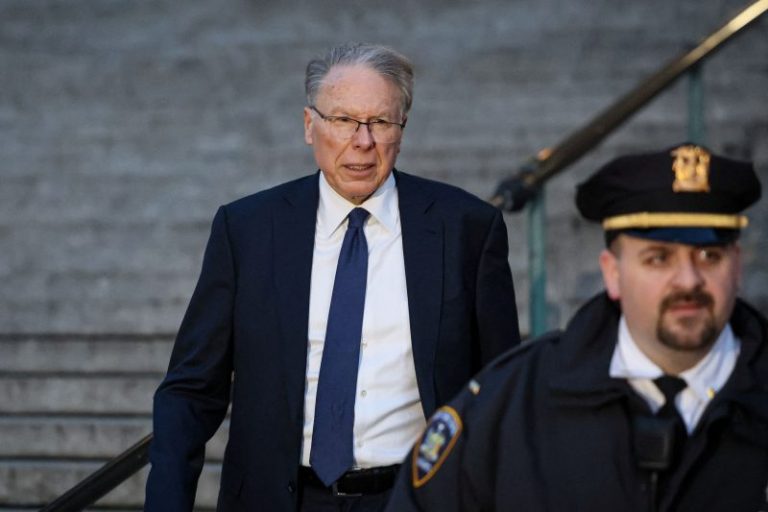NEW YORK — A lawyer for the National Rifle Association said in court Tuesday that the nonprofit gun rights group is far from the type of “scam” charity alleged in a civil corruption lawsuit by the New York attorney general.
NRA lawyer Sarah Rogers said in her opening statement that the group was not one known for stealing funds from donors. New York state’s lawsuit against the NRA alleges that longtime leader Wayne LaPierre and his inner circle abused access to millions of dollars belonging to the organization.
“Everyone in this courtroom should be able to agree that the NRA is not one of those scam charities,” Rogers said. “Whether you agree or disagree with the NRA’s mission, there should be no dispute the NRA delivers on that mission.”
Rogers said the NRA is effective in what it does for gun rights advocacy, which is “why everyone in this room knows the NRA by name.”
New York Attorney General Letitia James (D) sued the NRA, LaPierre and three others in 2020 for allegedly engaging in corrupt practices that violated state law governing how charities registered in New York can operate. The NRA was founded in 1871 in New York.
LaPierre is accused of accepting lavish gifts that amounted to conflicts of interest. He allegedly ran up enormous tabs for private jets to the Bahamas and elsewhere, other travel expenses, expensive outings and pricey clothing for personal benefit.
His attorney Kent Correll said in his opening statement Tuesday that there were valid business reasons for LaPierre’s spending.
LaPierre spent more than $500,000 on charter flights to the Bahamas eight times in three years to attend annual gatherings hosted by his wealthy friend, film producer David McKenzie, Correll said. There were influential people there and networking with them was beneficial to the NRA, he said.
LaPierre receives “a lot of death threats” and was instructed to fly only on private aircraft, Correll said. LaPierre’s costly clothes also had true business purposes, the attorney said.
James’s offices has argued that NRA supporters have been duped and cheated by rampant financial abuses at the organization. LaPierre and his associates allegedly cost them millions of dollars.
Special counsel Monica Connell argued Monday that LaPierre called the shots at the NRA and shut down anyone he saw as a threat to his ability to spend NRA funds. The state attorney said the organization under LaPierre “did not operate according to law or even according to its own rules” but rather on the basis of what LaPierre wanted.
If they lose at trial, LaPierre and current general counsel John Frazer, along with former treasurer Wilson Phillips, could be made to refund the NRA millions. Former chief of staff Joshua Powell was also a defendant, but he settled his case Friday for $100,000 and an agreement to testify.
On Friday, LaPierre announced that he was resigning after more than three decades as NRA chief executive, citing health issues, effective at the end of January. James is still also asking for a formal ruling that he should be removed from his position, along with Frazer, the only other remaining employee among the defendants in the case.
After opening statements finished Tuesday, state lawyers called the first witness to testify.
Roscoe Marshall, a Texas businessman and former NRA board member, told the court that he grew concerned about the organization after James filed her lawsuit. He testified that he began asking questions and raising concerns internally, and was met with hostility from fellow board members and resistance from Frazer when he requested certain records. He filed an internal NRA ethics complaint against Frazer.
Marshall said the allegations he first learned about when news of the lawsuit broke shed light on grave operational and financial issues at the NRA that had been kept quiet.
“My hope really from the beginning until now was to help [the NRA] and put it on the right path,” Marshall testified. “They’ve been on the wrong path for a very long time in my opinion.”

